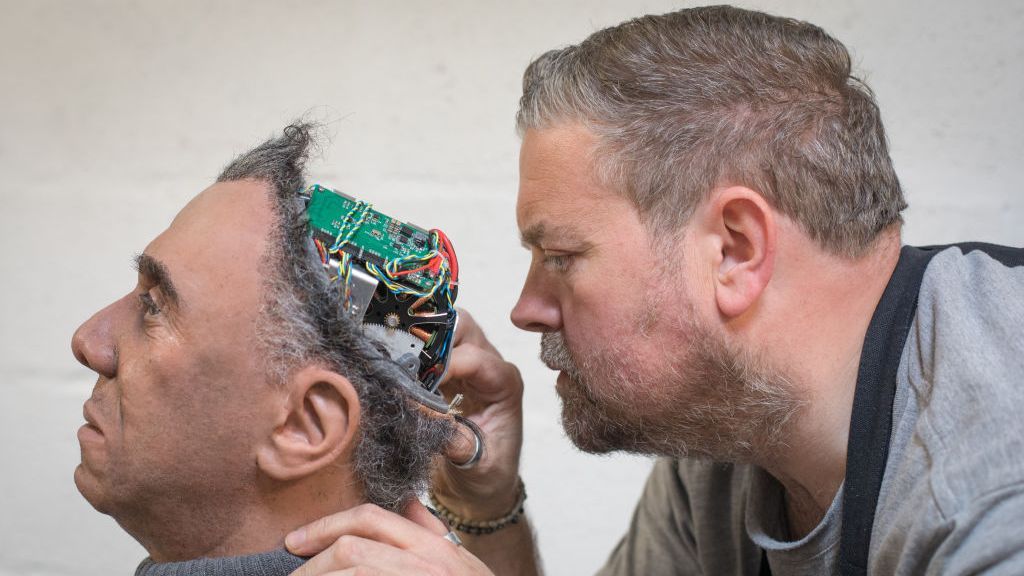
Current smart technology has ushered in the Fourth Industrial Revolution, a new era that integrates communications with automated industrial practices and traditional manufacturing.
In short, smart devices can make human intervention unnecessary: Machines communicate, self-diagnose and solve problems. While these new products and services may increase efficiency, analysts say they should be used as ethically as possible, given the impact on our lives.
Yet, advances in AI, the internet of things (IoT), 3-D printing, robotics, genetic engineering, quantum computing often blur the boundaries between the digital, physical and biological worlds.
For more than 20 years, technology has become ingrained in our lives. Email is mobile. Slack, Discord, Microsoft Teams and Cisco Webex are commonplace. And that reality ushers in a new set of complex challenges for business leaders to negotiate.

The Fourth Industrial Revolution demands technological products and services be more ethical and inclusive, according to Devon McGinnis, Salesforce‘s senior marketing manager. “Think GPS systems that suggest the fastest route to a destination, voice-activated virtual assistants, such as Apple’s Siri, personalized Netflix recommendations, and Facebook’s ability to recognize your face and tag you in a friend’s photo.”
The question is not whether technology is good or bad, but how it’s designed and used.
“You need to think about what information you’re collecting when you’re designing what you’re going to collect, not collect everything and then say: ‘I shouldn’t have this information,’” said Barbara Grosz, Higgins Research Professor of Natural Sciences at Harvard’s John A. Paulson School of Engineering and Applied Sciences.
To navigate the Fourth Industrial Revolution, companies should apply the following four strategies:
1. Design with frameworks that implement product, policy, law and ethics to ensure basic human rights are protected for every user.
2. Maintain diverse teams within the organization to generate insights, provide feedback, and oversee products and services before they go to market.
3. Engage stakeholders and established leaders quarterly to guide company core principles and values.
4. Leverage data-driven research on emerging trends to assess risk and support a movement towards industry-wide applications of ethics while including all segments of society.
Such rules can act as a blueprint for companies navigating unchartered waters.
Consumers love technology because it makes their lives easier. Companies love technology because it makes money. However, consumers are weary of intrusive technology that oversteps its role, and companies, from Enron to Wells Fargo, can take a revenue or reputation hit if ethics are disregarded. Social networks have also come under fire for privacy violations.
Modern tech users are more aware of the misuse of personal data, the spread of false information and manipulation. They don’t want retailers selling personal details without their consent; social media influencing the news they read; or corporate algorithms favoring some groups other others.

Penn State University doctoral student Christen Buckley argues that data collection and its use must be done carefully — sophisticated data analysis can identify discrimination in voting, housing, education and other necessary areas of society, but it can also have negative consequences.
“More often, the way data is collected and used reinforces socioeconomic divisions and power hierarchies. Generally, governments and corporate entities alike are startlingly bad at protecting vulnerable communities and their data. Problematic collection and use of such data is only made worse by a ‘collect first, consider ethics later’ mentality, Buckley wrote.
“The possibility of profiling or inadvertently revealing individuals’ membership to certain groups may be acknowledged, but addressing them is not prioritized.”

Grace Barkhuff, a former product manager, and now Georgia Tech graduate student is trying to determine the rights a person has online. These include: the right to access the internet, the right against harassment online and cyberattacks, the right to free speech, equality in access and treatment online, the right to data ownership, the right to personal IP, and the requirement to consider environmental impacts of digital use.
She wants to see General Data Protection Regulation, or GDPR, adopted in the United States across industries. The goal of GDPR is to make data privacy laws uniform across Europe.
“Did you know that if you’ve ever used [dating app] Tinder, the company has what would be a binder-full of data on you? Your preferences, times you logged in, every conversation you’ve ever had,” said Barkhuff. “They know when you’re lonely. They know when you’re dating or not dating. Tinder has no interest in deleting this information, that is, until GDPR came around and forced them to at least allow European users to request their information be deleted.”
An executive with cognitive AI technology company Supercharge Lab said businesses are currently in a transitional phase, and companies are being forced to re-evaluate their past practices.
“For organizations to compete in an evolving landscape of ‘rage against the corporate machine,’ building ethical applications of their solutions is critical. This can be accomplished by first ensuring we build technology that does no harm, then by continuously auditing outcomes against a strong moral compass,” said company founder Anne Cheng, who specializes in executive strategy and operations management.
“Generation Z and the generations that come after will lead the change to ensure that only the good will survive,” she said.
Edited by Fern Siegel and Bryan Wilkes
The post Forward Motion: The Fourth Industrial Revolution Is Happening Now appeared first on Zenger News.
